Hi there, fellow dog lover! I’m Dr. Candy Akers, a holistic veterinarian with a passion for helping you understand and care for your furry friends. Today, let’s chat about something very specific – Beagle Eye Health. Beagles, with their adorable droopy ears and expressive eyes, are a joy to have around. But those beautiful eyes can sometimes be prone to certain health conditions.
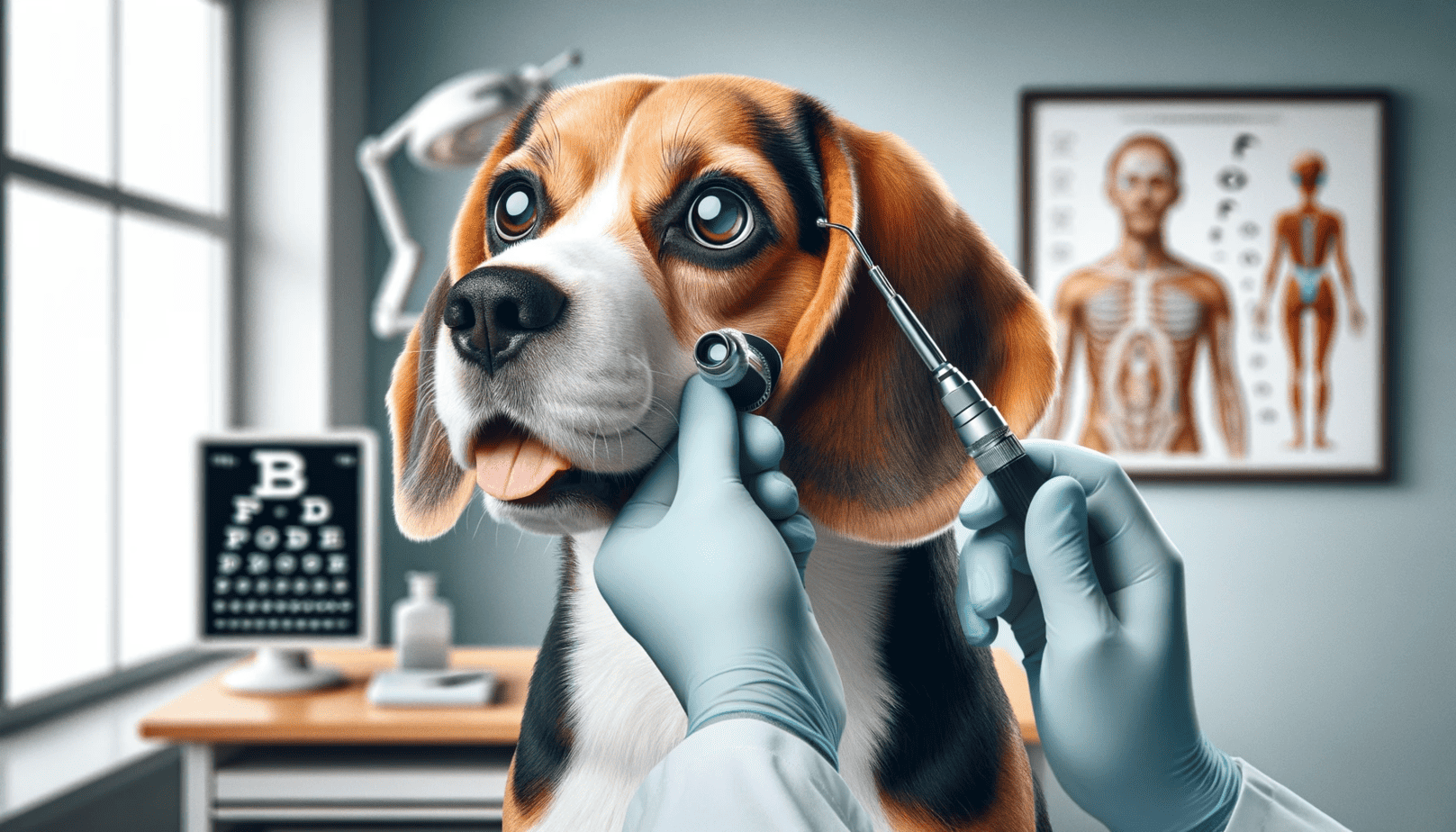
As a vet, I’ve seen many Beagle Eye Conditions that can cause discomfort or even vision loss if not properly addressed. But don’t worry, there are plenty of Veterinary Solutions for Beagle Eye Health available to help your pup maintain a clear, bright-eyed view of the world.
Understanding and caring for your Beagle’s eye health involves knowing about their unique eye structure, recognizing common eye issues, and implementing preventive measures. It also means ensuring a healthy diet, maintaining environmental hygiene, and establishing a routine eye care regimen.
Whether you’re dealing with a specific Beagle Eye Disease or just want to ensure optimal eye health for your pet, I’m here to guide you through the process. So, let’s navigate the world of Beagle Eye Health – Conditions & Solutions From Vet together!
Understanding Beagle Specific Eye Structure
As a holistic veterinarian, I’ve encountered numerous Beagle Eye Health issues that are unique to this breed due to their specific eye structure. Understanding your Beagle’s eye anatomy is crucial to recognizing potential health problems and seeking timely solutions. Let’s delve into this fascinating subject.
Beagles are bestowed with large, expressive eyes that are brown or hazel in color. Their eyes are set well apart, giving them a wide field of vision, essential for their historical roles as hunting dogs. The shape of their eyes is slightly oval, and they are neither protruding nor sunken.
The key elements of a Beagle’s eye structure include the cornea, the clear front surface of the eye; the iris, which controls the amount of light entering the eye; the lens, responsible for focusing light onto the retina; and the retina itself, which converts light into electrical signals for the brain to interpret.
What makes Beagles unique is that they have a higher likelihood of developing certain eye conditions due to their breed and genetics. For instance, Beagles are prone to “Cherry Eye,” a condition where the third eyelid’s gland prolapses, causing a red mass to protrude from the eye. They’re also susceptible to Progressive Retinal Atrophy (PRA), an inherited disease that causes gradual vision loss.
Another distinctive feature of Beagle eyes is their lower eyelids, which are often loose or droopy. This trait, while endearing, can lead to exposure of the conjunctiva (the pink tissue lining the eyelids), making them vulnerable to irritation and infections.
As a Beagle parent, understanding these unique eye characteristics can help you keep a vigilant watch for any changes or abnormalities. Regular vet care for Beagle Eye Health is vital, as early detection of any potential issues can lead to more effective treatments and better outcomes for your furry friend.
Remember, your Beagle’s eyes aren’t just windows to their soul, but also indicators of their overall health. So, keep those peepers in check!
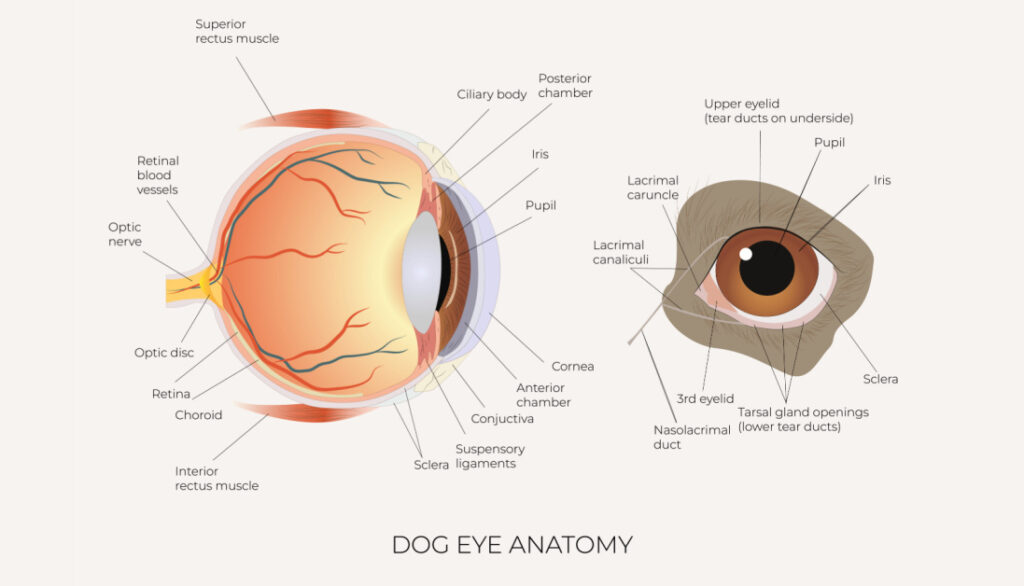
Common Eye Issues In Beagles
As a veterinarian, I often observe that beagles are susceptible to various eye conditions due to their unique eye structure. Understanding these common issues can help you provide the best care for your furry friend. Here are some common Beagle Eye Health – Conditions & Solutions From Vet.
- Cherry Eye: This condition is characterized by a protruding third eyelid, giving the appearance of a ‘cherry’ in the corner of the eye. It’s not typically painful but can cause discomfort and tear production issues. Treatment may involve surgical correction.
- Glaucoma: Beagles are at risk for glaucoma, a condition where increased pressure in the eye can lead to blindness if not treated promptly. Symptoms include redness, tearing, and a cloudy appearance to the eye. Veterinary solutions for Beagle Eye Health in this case often involve medications to reduce pressure and sometimes surgery.
- Entropion: This is a condition where the eyelid rolls inward, causing the hair to irritate the eye surface. It can lead to corneal ulcers and discomfort. Surgical correction is usually the best solution.
- Dry Eye: Also known as Keratoconjunctivitis Sicca, this condition involves decreased tear production leading to dry, irritated eyes. Treatment often involves eye drops and medications to stimulate tear production.
- Progressive Retinal Atrophy (PRA): This is a genetic condition that gradually leads to blindness. While there’s no cure, early detection can help manage the condition and slow its progression.
- Distichiasis: This condition involves abnormal growth of eyelashes causing irritation to the eye. Treatment often involves removal of the offending lashes.
Remember, these are just a few of the common Beagle Eye Conditions. It’s crucial to have regular vet check-ups to monitor your Beagle’s eye health and catch any potential issues early on. Early detection and prompt treatment can make a significant difference in preserving your Beagle’s vision.
As a vet, I understand how concerning it can be to see your pet in discomfort. That’s why I’m here to help you navigate these Beagle Eye Health Problems and Treatments. Whether through preventive measures or necessary treatments, we can ensure your Beagle’s eyes remain as healthy as possible.

Nourishing Your Dog’s Vision: Essential Nutrients for Eye Health
Ensuring your Beagle gets the right nutrients for optimal eye health is essential for maintaining clear vision and preventing age-related issues. Natural, nutrient-rich foods and supplements can play a key role in supporting their eyesight. From vitamin A-packed freeze-dried liver treats to antioxidant-rich blueberries and targeted supplements like Eyeplex by Standard Process, there are several ways to nourish your dog’s eyes. In this section, we’ll explore how these powerful ingredients contribute to long-term vision health and overall well-being.
Eyeplex by Standard Process
Eyeplex by Standard Process is a specialized supplement designed to support your Beagle’s eye health with a blend of essential nutrients. Formulated with key vitamins, minerals, and antioxidants, Eyeplex helps protect against oxidative stress, supports retinal function, and promotes overall vision health. Ingredients like vitamin A, vitamin C, and zinc contribute to maintaining strong eyesight, while whole food ingredients provide additional phytonutrients for cellular protection. Adding Eyeplex to your Beagle’s diet can be especially beneficial for aging dogs or breeds prone to eye conditions, offering targeted nutritional support to keep their vision sharp and healthy for years to come.
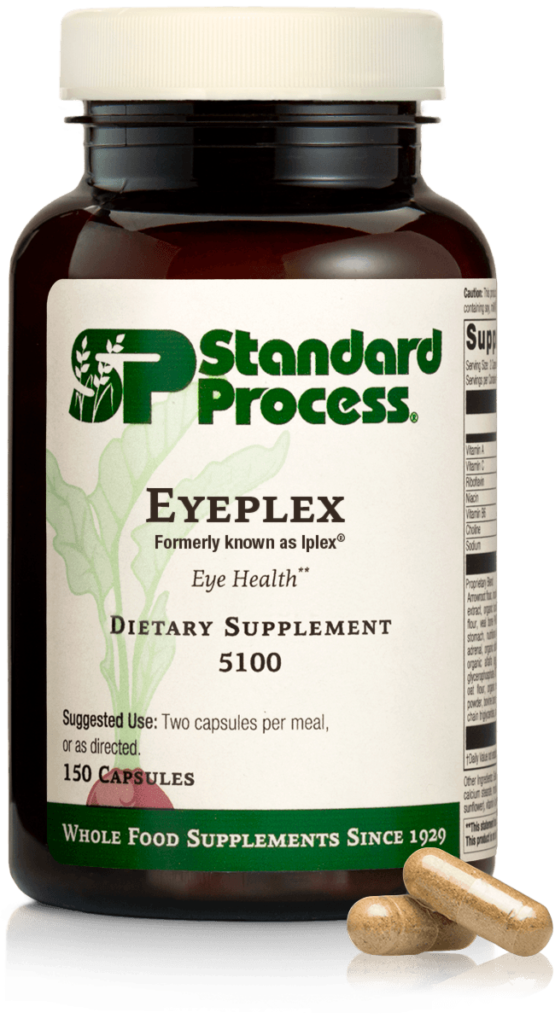
Freeze-Dried Blueberries
Freeze-dried blueberries are a powerhouse of antioxidants that can help protect your Beagle’s eyes from oxidative stress and age-related damage. Rich in vitamins C and E, as well as anthocyanins, these tiny but mighty berries help combat free radicals that can contribute to eye diseases like cataracts and macular degeneration. Incorporating freeze-dried blueberries into your dog’s diet provides a natural and delicious way to support retinal health, reduce inflammation, and promote overall vision longevity. Plus, they’re a low-calorie, dog-friendly treat that makes a great addition to a balanced diet for long-term eye health.
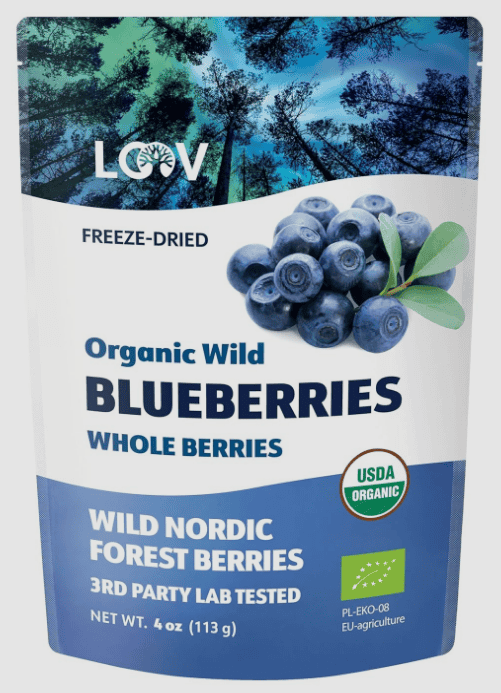
Freeze-Dried Liver
Freeze-dried liver treats are an excellent natural source of vitamin A, an essential nutrient for your Beagle’s eye health. Vitamin A plays a crucial role in maintaining good vision, especially in low-light conditions, while also supporting overall immune function and skin health. Since liver is rich in bioavailable vitamin A, incorporating freeze-dried liver treats into your dog’s diet provides a convenient and nutritious way to promote optimal eye function. Just be sure to feed them in moderation, as excessive vitamin A can lead to toxicity. Adding these nutrient-packed treats to your pup’s routine is a simple, tasty way to support their long-term vision and well-being!
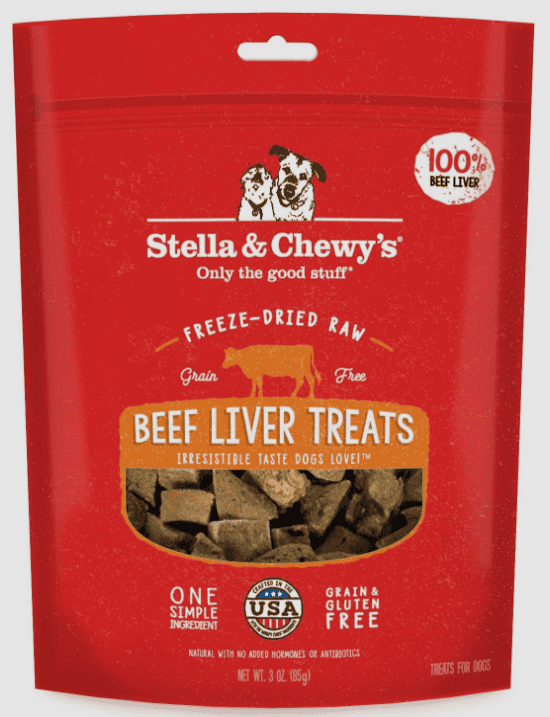
By prioritizing your Beagle’s eye health through a balanced diet and nutritional supplements, you can help prevent many common eye issues. These simple steps can go a long way in ensuring your pup’s eyes stay healthy and clear for years to come.
Environmental Hygiene To Reduce Eye Problems
Ensuring a clean, safe environment for your Beagle is crucial in maintaining their eye health. This includes paying attention to indoor air quality and being mindful of the products you use around your home, such as sprays, diffusers, candles, and incense.
Indoor Air Quality
Indoor air quality plays a significant role in Beagle Eye Health. Beagles, like other breeds, can be sensitive to pollutants and allergens in the air, which can lead to eye irritation and other eye health issues. Here are some tips to improve indoor air quality:
- Ensure proper ventilation: Keep windows open whenever possible to allow fresh air in and circulate stale air out.
- Use air purifiers: These devices can help remove allergens and pollutants from the air. Opt for ones with HEPA filters for best results.
- Regularly clean and dust your home: Dust and pet dander can accumulate quickly, leading to poor air quality. Regular vacuuming and dusting can help keep these irritants at bay.
Sprays, Diffusers, Candles, Incense
While we all love a fresh-smelling home, certain products can cause irritation to your Beagle’s eyes. Here’s what to consider:
- Avoid aerosol sprays: These can often contain harsh chemicals that can irritate your Beagle’s eyes. Opt for natural, non-aerosol alternatives instead.
- Be mindful of diffusers: Essential oils can be harmful to dogs if ingested or inhaled in large quantities. Always keep diffusers out of reach and use them sparingly.
- Choose unscented candles: The smoke and scent from candles can cause eye irritation. If you must use candles, opt for unscented, soy-based ones as they produce less soot.
- Limit use of incense: The smoke from incense can also irritate your Beagle’s eyes. If you enjoy using incense, ensure your Beagle is in a well-ventilated area away from the smoke.
Remember, your Beagle’s environment plays a significant role in their overall health, including their eye health. By taking these steps, you can help create a safe, healthy space for your furry friend and potentially prevent common eye issues from developing.
Always consult with your vet about any concerns you have regarding your Beagle’s eye health. They can provide tailored advice and treatment options based on your Beagle’s specific needs.

Routine Eye Care & Maintenance
Just like humans, Beagles also require routine eye care and maintenance to ensure optimal eye health. As a Beagle parent, you need to be vigilant about your dog’s eye health and take necessary steps to prevent any potential eye conditions.
Daily & Weekly Care & Maintenance
Start with daily check-ups for your Beagle’s eyes. Look for any redness, cloudiness, or discharge. If you notice anything unusual, it’s best to consult your vet immediately. Beagle Eye Health can be greatly improved with regular cleaning. Use a soft, damp cloth to gently wipe around your Beagle’s eyes, removing any dirt or buildup.
Weekly care should include a more thorough examination. Check for any changes in the eyes’ color or texture. Also, look for any signs of discomfort like excessive blinking or squinting. Remember, early detection of Beagle Eye Conditions can make treatment more effective.
Monitor Hair Length, Nail Length, Bath Frequency
Monitoring your Beagle’s hair length is also crucial for maintaining their eye health. Long hair can irritate the eyes and lead to infection. Therefore, regular trimming around the eyes is recommended. Similarly, long nails can accidentally scratch the eyes, causing serious injury. Regular nail trims can prevent such incidents.
Bathing frequency also plays a role in Beagle Eye Health. Over-bathing can lead to dry skin and hair, which can irritate the eyes. On the other hand, not bathing your Beagle enough can also lead to dirt and bacteria buildup, which can also cause eye infections. Therefore, it’s important to find a balanced bathing schedule for your Beagle.
Remember that Vet Care for Beagle Eye Health is essential. Regular vet visits can help detect any potential eye conditions early and provide appropriate treatment. Also, your vet can guide you about the best practices for Beagle Eye Care & Maintenance.
Frequently Asked Questions
- What are common eye conditions in Beagles?
Common eye conditions in Beagles include cherry eye, cataracts, glaucoma, and progressive retinal atrophy (PRA).
- How can I prevent eye problems in my Beagle?
To prevent eye problems in your Beagle, make sure to keep their eyes clean and free from debris, avoid exposing them to irritants or chemicals, provide a balanced diet with essential nutrients, and schedule regular check-ups with a veterinarian.
- What are the symptoms of an eye infection in Beagles?
Common symptoms of an eye infection in Beagles include redness, swelling, discharge, excessive tearing, squinting, rubbing or pawing at the eyes, and changes in behavior or appetite.
- Can Beagles develop hereditary eye diseases?
Yes, Beagles can develop hereditary eye diseases such as PRA, which is a progressive degeneration of the retina leading to vision loss.
- What are the treatment options for Beagle eye conditions?
Treatment options for Beagle eye conditions vary depending on the specific condition. They may include medications, eye drops, surgery, or other interventions recommended by a veterinarian.
